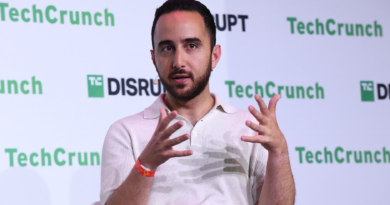Morocco’s foodtech Terraa raises $1.5M led by FoodLabs
Terraa, a Moroccan B2B tech-enabled food distribution platform, has raised $1.5 million pre-seed funding in a round led by FoodLabs, a European early-stage VC investor and venture studio for food, sustainability and health. Other participants in the round were UM6P Ventures, Outlierz Ventures, Musha Ventures, and Africa-centric DFS Lab.
Founded by Youssef Benkirane and Benoit De Vigne last year, Terraa, which sources fresh food directly from farmers and deliver it to resellers, plans to use the funding to strengthen its logistics infrastructure, expand across Morocco’s cities, before exploring new markets within the region in a year’s time.
The startup is bringing change to the fresh food supply chain in Morocco, which Benkirane describes as highly-fragmented, still traditional and dominated by intermediaries buying produce from farmers at low prices, only to sell for huge profits.
It intends to provide a consistent and competitively-priced market for the produce, helping farmers cut back on the post-harvest losses often driven by lack of markets, especially in times of overproduction. Retailers using Terraa will benefit from consistent prices and supplies of high-quality goods.
“In the next few months, we will build some collection centers in all the major agricultural cities of Morocco. We will use them to store the produce we have collected from the farmers for distribution to the end customers,” Benkirane told TechCrunch.
“Morocco is our priority at the moment, and we are building the playbook in terms of operations, building our tech, and expanding in cities. When we feel confident that we can replicate this model elsewhere, we will start with a big country in Africa where there’s a huge market, to kick off our expansion in the continent,” he said.
Benkirane added that they decided to launch Terraa informed by the need to bring efficiency in the fresh-food market.
“The fresh produce market in Morocco is very fragmented with many intermediaries that have been in business for decades. They work out of habits, and don’t use any best practices in terms of operations or technology. In addition to fragmentation, what we see is high inefficiencies, throughout the value chains from the farmer to the end consumer. And the other thing is the opacity that we see throughout the value chain,” he said.
The startup sources fresh produce directly from farmers to fulfill online orders by retailers, restaurants and other resellers. Orders are made via its website or WhatsApp. Most of the processes are done internally for quality control, but they plan to increasingly work with vetted external providers, where possible, to support some of its operations.
“We handle everything, from sourcing from the farmers to the delivery to the end consumer. We took this decision because farmers are not that tech savvy and would require a lot of training for them to know how to best utilize the tech platforms. How we operate ensures that farmers have all the time they need to concentrate on farming,” he said.
Benkirane says their operation model ensures that the price of produce they sell is not inflated, hygiene is maintained during the entire process from production, packaging, to the delivery, and that there is less food wastage because of a ready market.
“In terms of wastage, what we see is for example, in North Africa 40% of fruits and vegetables produced by farmers are lost or wasted. And this is because farmers don’t know what to produce. They lack good data to optimize production, so they farm based on habits…We want to empower this community when it comes to best practices,” he said.
“In the future, we will have strong capabilities around demand forecasting, and we will share this with farmers for them to know what they need to be producing, and the right quantities, to optimize their production to make sure that they will sell 100% of their production to us,” he said.
Forecasting will also help in dealing with post-harvest losses, which is also due to over production.
Benkirane and De Vigne, both have extensive experience in the foodtech and e-commerce space, and are banking on their experience to grow Terraa and to change the value chains around fresh food in Africa. Benkirane has previously worked with foodtechs such as Zapp, which he helped scale in both Europe and the US, while De Vigne has held several executive roles including at e-commerce platform Jumia.
Till Hoelzer, an investor at FoodLabs said: “We’re excited about Terraa’s mission of making food more affordable and accessible throughout Africa whilst ensuring secure income for farmers. In regions where mobile penetration is ubiquitous, food supply chains remain highly complex. We see a massive opportunity in leveraging technology to drive quicker and more efficient transactions.”




